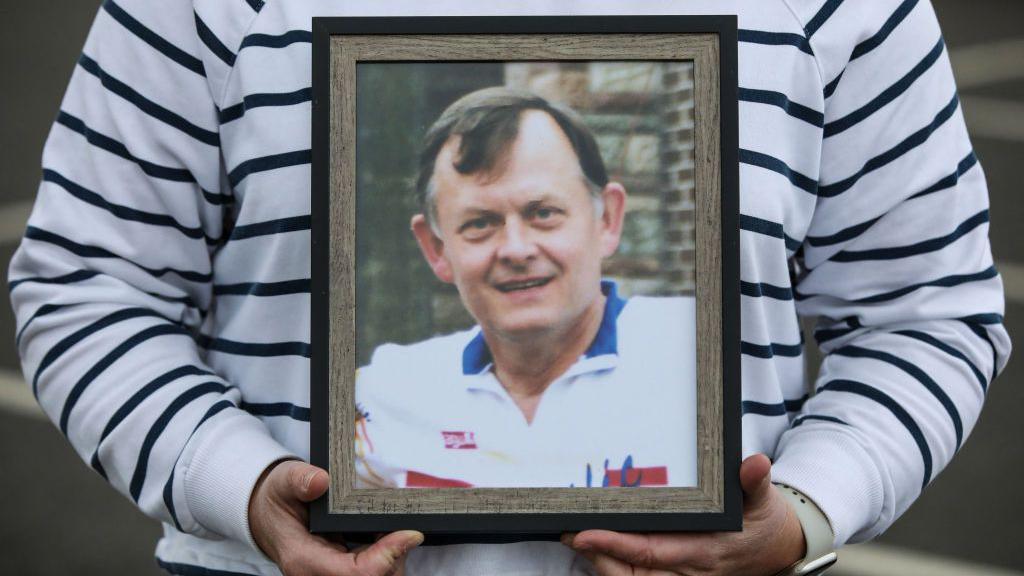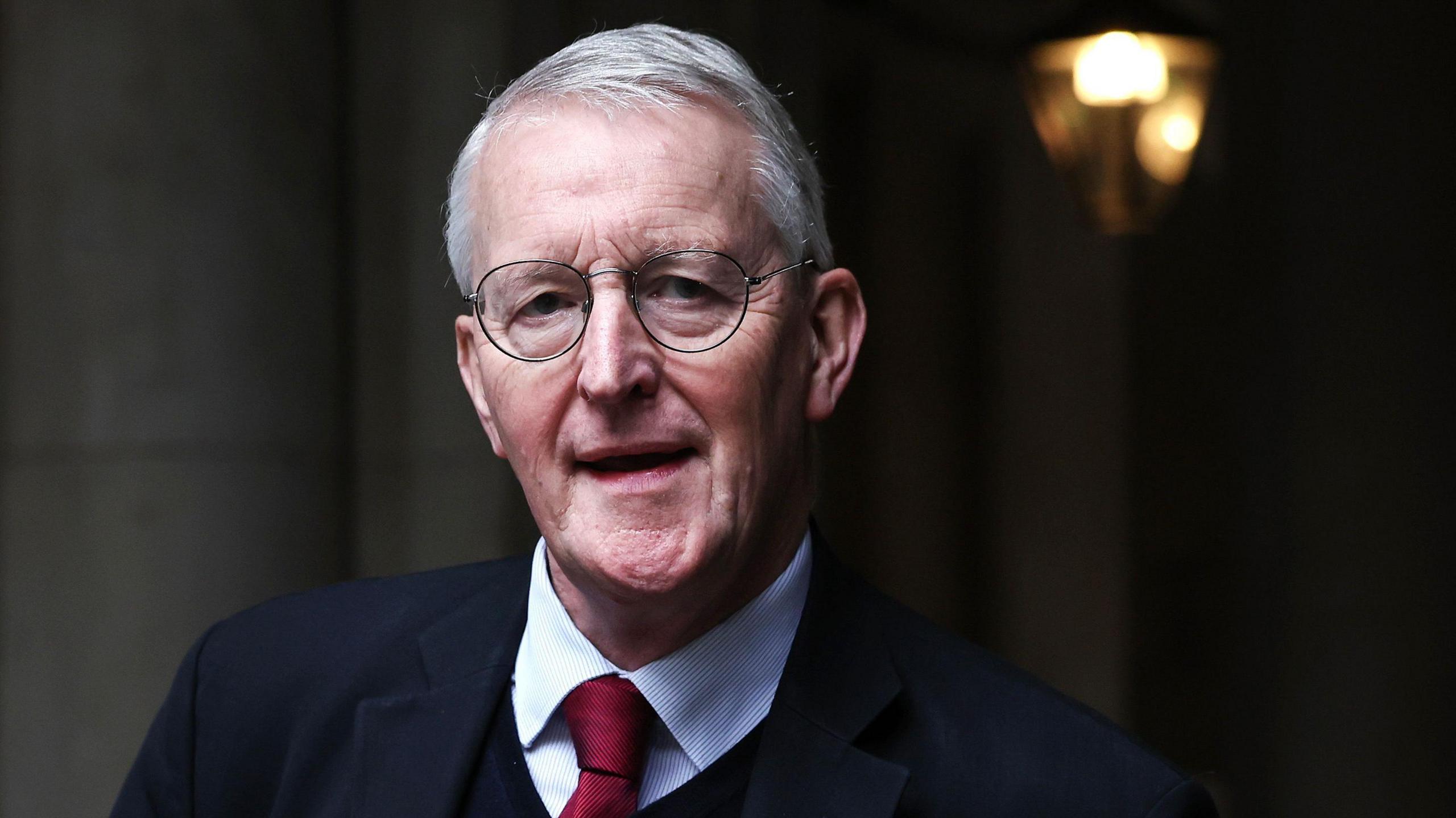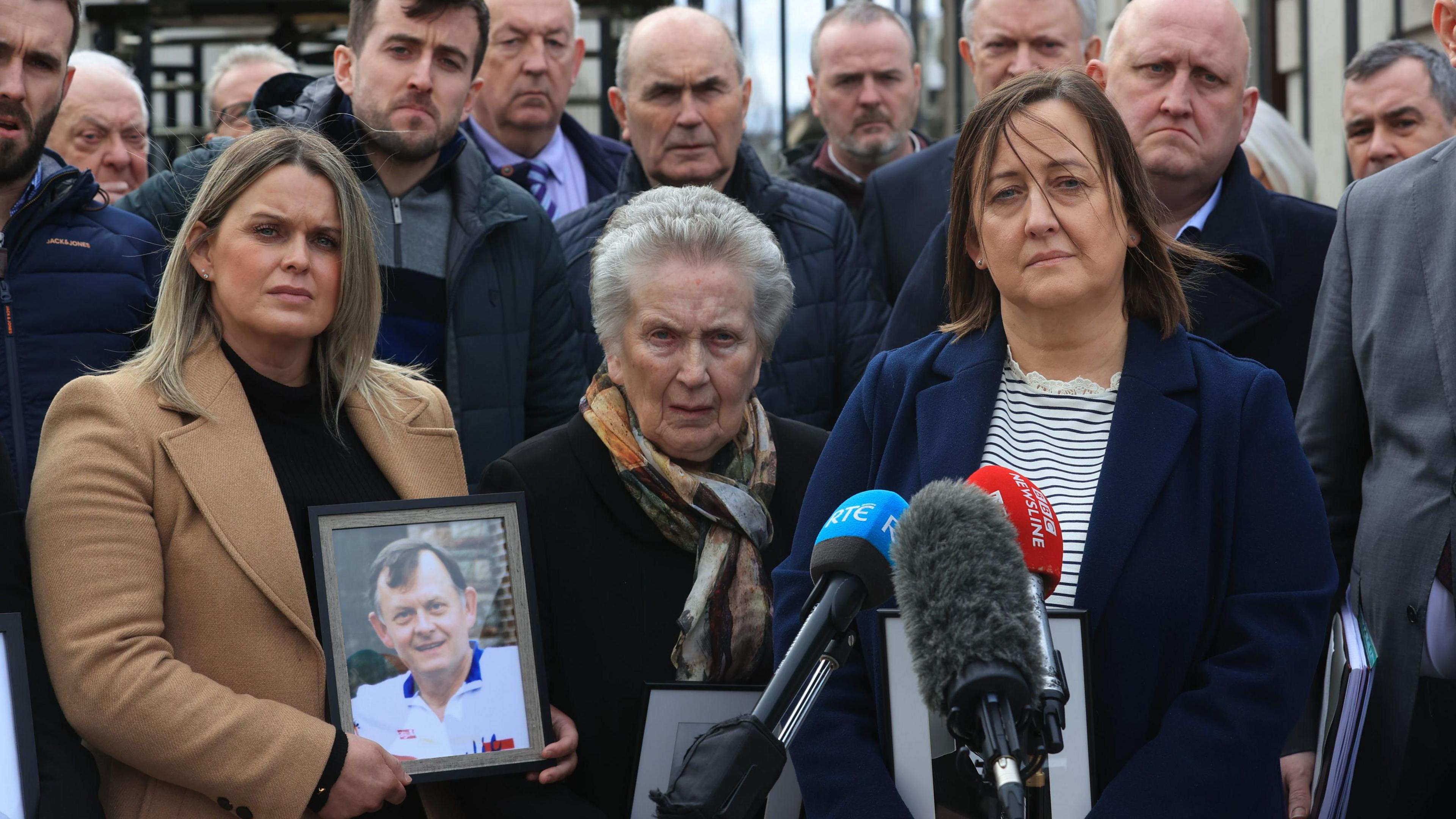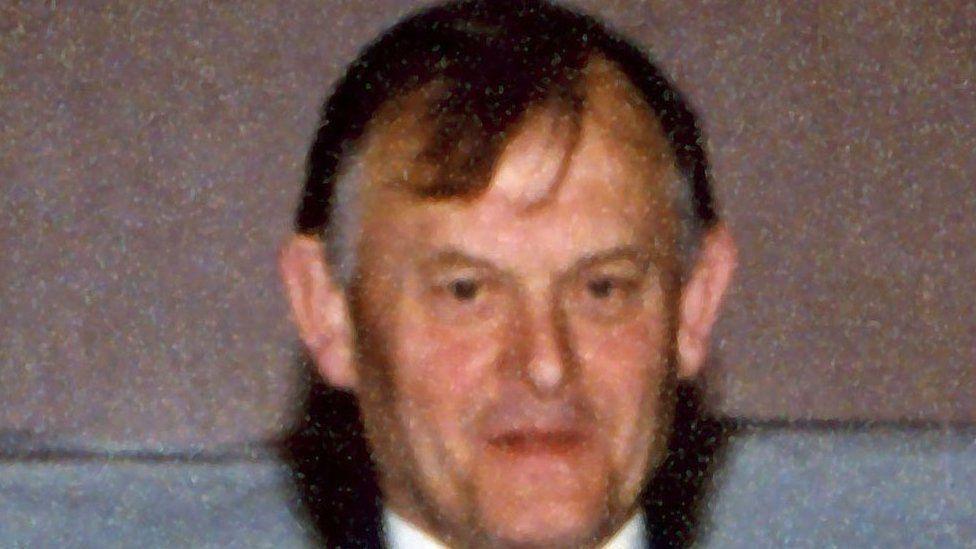Judge rules government must set up Sean Brown inquiry

Sean Brown was shot dead in 1997
- Published
Northern Ireland Secretary Hilary Benn must set up a public inquiry into the murder of GAA official Sean Brown, a High Court judge has ordered.
Mr Brown, 61, was shot dead near Randalstown in County Antrim in 1997 after being abducted by loyalists.
Mr Justice Humphreys ordered an inquiry to be established after finding the UK Government remains in breach of a human rights duty to probe the full extent of state collusion in the May 1997 killing.
The Northern Ireland Office said it acknowledged "the serious issues raised by this ruling" and would "give careful consideration to the full written judgment".
Granting the judicial review challenge by the Mr Brown's 87-year-old widow Bridie Brown, Mr Justice Humphreys held there is a "clear and unambiguous obligation" to establish a statutory probe.
"No viable alternative to a public inquiry has been advanced," the judge confirmed.
"In these circumstances, there can be only one lawful answer, a public inquiry must be convened to satisfy the state's Article 2 obligation."
In a statement the NIO said: "We have enormous sympathy for Mrs Brown and her family who have suffered so much since Sean Brown's murder."
First Minister Michelle O'Neill has urged the government to accept the court's ruling.
GAA president Jarlath Burns, who was present in court, praised the "perseverance of the Brown family over a 27-year period".
"They have endured a torturous process but have never wavered in their conviction to find out who was behind the events that led to Seán's brutal murder that night after locking up their GAA club in south Derry."

The secretary of state rejected a request for a public inquiry
In February, it emerged that more than 25 people, including state agents, were linked by intelligence to the murder.
The following month, Coroner Mr Justice Patrick Kinney said a public inquiry was "the appropriate way" to examine the full circumstances of the killing.
He made the request in writing to the government.
The move had the backing of PSNI chief constable Jon Boutcher.
However, the government rejected this request.
Benn said he was "confident in the Independent Commissioner for Reconciliation and Information Recovery's (ICRIR) capability to deliver justice".

Birdie Brown (centre) said denying a public inquiry breached her rights
According to Mrs Brown, the decision to deny her a public inquiry into her husband's murder breached Article 2 of the European Convention on Human Rights.
Her lawyers argued that it is the only plausible way to expose the full truth of state involvement and the level of protection given to the killers.
Barrister Desmond Fahy KC accepted that the chances of anyone ever being convicted for the killing are "vanishingly small".
But even though they may have escaped accountability, he insisted the reasons must still be examined.
'Frustrated by the state at every turn'
Counsel for the Government argued that the challenge involved intruding into the separate role played by the government.
He insisted that the Secretary of State retains the discretion to establish public inquiries.
Mr Justice Humphreys said that "previous efforts to investigate this death have been wholly inadequate".
"The inquest process was frustrated at every turn by the failure of the state to comply with statutory disclosure obligations.
"These failings were so egregious that it led the coroner to question whether the non-compliance was part of a deliberate effort to prevent the inquest from discovering the truth."
Acknowledging it was an unusual and exceptional step to take, the judge concluded that it was fully justified by the legal principles and facts surrounding the killing.
"After 27 years, the United Kingdom has manifestly failed to investigate the murder of Sean Brown in which state agents were allegedly involved," he said.
"An 87-year-old widow does not know how, why or by whom her husband was killed."
He confirmed: "I therefore make an order of mandamus compelling the Secretary of State for Northern Ireland to cause a public inquiry to be held, under the Inquiries Act 2005, into the death of Sean Brown on May 12 1997."
'Unimaginable obstacles'
The first minister said that the court's decision was "unequivocal" and "must be accepted by the British government".
Michelle O'Neill added that there "can be no further delays to this case".
"I want to commend Sean's wife, Bridie, and the entire family who did not give up despite decades of delay and denial," she said.
SDLP Mid Ulster MLA Patsy McGlone also welcomed Tuesday's ruling.
He said that this would be a "hugely emotional day" for the family of Sean Brown, who he said "have had to overcome unimaginable obstacles simply to get the answers they deserve".
"Sean was held in the highest regard right across our community and I know that everyone will be thinking of the Brown family today."
He called on the secretary of state to bring forward a public inquiry as soon as possible.
Related topics
- Published13 September 2024

- Published27 February 2024

- Published4 March 2024
